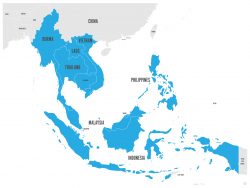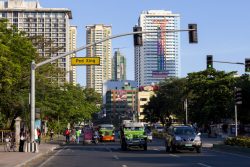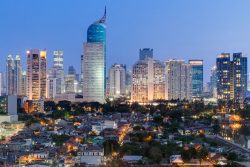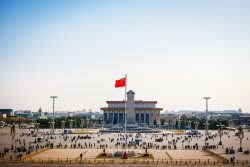2019 Review: A year of ups and downs
- Daniel Teo

2019 has been a year of ups and downs in the job market – particularly in Asia, where the challenging economic climate and rapid digital transformation have had a major impact on both employers and employees.
While many jobs have been under threat, notably HSBC who has plans to cut up to 10,000 jobs in order to reduce costs, there have been positive signs of a growing job market in the region. One of which is the salary growth that Asia will expect to see in the new year as Asian nations dominate the top five global rankings in terms of salary hikes in 2020.
So as the year comes to a close, let’s take a look back on some of the biggest news in the region that have made 2019 one of the most defining years in the job and employment world.
Regional
As countries in the region look to keep pace and cope with the wave of digital transformation and automation, many traditional and manual jobs have been threatened while new opportunities and growth have also been created.
1) India and Southeast Asia lead globe in expected salary hikes
Occupying the top five spots in the global salary hikes for 2020 are all Asian countries, with India taking top spot while Vietnam, Indonesia, Cambodia and Thailand coming in second to fifth respectively.
2) More than half of workers in ASEAN risk losing jobs to technology
As many as 56% of the workforce in the ASEAN region could be displaced within the next decade or two as technology continues to disrupt employment. Jobs most at risk are those that involve routine tasks that can increasingly be automated, such as those carried out by sewing machine operators, sales staff, food service personnel and office clerks.
3) Dyson announces 2,000 new jobs for Southeast Asia
Dyson has revealed its recruitment plan for Southeast Asia, following its decision to relocate its headquarters to Singapore. This will include engineers, as well as employees working on production, design and operations.
Singapore
1) A quarter of Singaporean employees seek new jobs in 2020
2020 is set to be a tough year for employee retention in Singapore as a staggering 27% of the workforce in Singapore plan to look for a new job in 2020 while 61% of the rest say they would be open to a new job if being headhunted.
HSBC is planning to cut up to 10,000 jobs to reduce costs across the banking group. But Singapore can breathe a sigh of relief as it is set to survive the latest round of job cuts.
3) Labour helps Singapore hit top spot for competitiveness
Singapore has been ranked the world’s most competitive nation, based on the 2019 Global Competitiveness Report. The WEF measures more than 100 key indicators including inflation, digital skills, trade tariffs and labour market, where Singapore scored the highest.
Malaysia
1) Grab adds 400 high-value jobs in Malaysia with centre of excellence
Grab launched a new Regional Centre of Excellence in its newly expanded 54,000 sq ft office space in Petaling Jaya, Malaysia, which will add at least 400 new high-value jobs.
2) Malaysian government wants more locals to replace foreign workers
The Malaysian government launched its Malaysians@Work initiative to reduce the number of foreign workers by more than 130,000 and to create around 350,000 jobs for locals by focusing on four key components – graduates, apprentices, women and low-skilled workers.
3) Malaysian youths will do ‘dangerous, dirty, difficult’ jobs for higher pay
Malaysian youths are willing to do dangerous, dirty, and difficult (so-called ‘3D’) jobs, if these come with high wages and better incentives.
Philippines
1) Philippines cement industry may need 400,000 more workers by 2030
It is expected that an additional 400,000 jobs will be created for Filipinos at local firms by 2030, according to forecasts by the Cement Manufacturers’ Association of the Philippines (CeMAP).
2) Google Job Search launches in Philippines with 500,000 listings
Google’s Job Search launched in the Philippines on February 13, featuring about 500,000 job listings on its initial day.
3) Duterte vetoes contract labour bill in the Philippines
Philippine President Rodrigo Duterte has vetoed a bill that would have forced businesses to turn temporary staff into regular employees.
Indonesia
1) Indonesia is missing out on the China exodus
As more companies look to move production out of China to avoid US tariffs, they are choosing Southeast neighbours Vietnam, Cambodia and Thailand rather than Indonesia.
2) Indonesia to overhaul generous payouts for fired workers
Indonesian president Joko Widodo has promised a major overhaul of labour laws to help revive factory output and boost jobs.
3) Indonesia government to spend US$35.5 billion on education
The government of Indonesia will invest substantially this year to improve the employability of country’s workforce.
Hong Kong
1) Hong Kong begins campaign to rebuild its image among employers
Hong Kong’s chief executive Carrie Lam has contacted eight public relations firms to try and rebuild the city’s damaged image.
2) “Naked resignations” are a rising trend in Hong Kong
Hong Kong workers are increasingly leaving their previous jobs before securing a new offer, most commonly because they “could not stand” those jobs.
3) Keeping staff out of the firing line in Hong Kong
As violence intensifies in Hong Kong, firms are asking workers to stay at home for their own safety as protestors run riot across the city.
Thailand
1) US car manufacturing giant slashes 350 jobs in Thailand
General Motors is laying off workers in Southeast Asia’s competitive auto market but pledges its ongoing commitment to Thailand.
2) Thai eSports startup predicts 10,000 jobs for the digital savvy
A Thailand-based gaming provider has just secured funding that will allow it to enter Myanmar, Laos, and Cambodia in 2020
3) Thailand running out of young and skilled workers
Thailand’s labour force is facing a crisis due to the country’s low birth rate and rapidly ageing population, which has reduced number of young workers that are available.
Japan
1) Japan approves new policy for employment of Asian workers
The Japanese government has pushed through a new immigration policy which will cover workers from China, Indonesia, Mongolia, Myanmar, Nepal, Thailand, the Philippines and Vietnam, to take effect in April.
2) Rising labour costs a top threat to Japanese firms in Asia
The majority of Japanese firms operating in Asia consider rising labour costs and the shortage of skilled labour as their top concerns, according to a survey by the Japan National Newspaper Association
3) Uniqlo to help improve worker conditions in Asia
Fast Retailing Co, the parent company of Uniqlo, has tied up with the International Labour Organization (ILO) to ensure labour protection in countries where social security systems are underdeveloped.
China
1) More of China’s graduates choose to work in second-tier cities
More Chinese professionals and young graduates are choosing to work in second- tier cities over the Mainland’s key economic centres, citing push factors such as large populations, traffic congestion, smog, and surging property prices.
2) China to introduce new measures to maintain stable employment
In order to stabilise the job market, China is looking to be more proactive in terms of employment policy for 2019.
3) China-Pakistan economic corridor to generate 700,000 jobs
A recent study forecasts that the China Pakistan Economic Corridor (CPEC) is likely to generate up to 700,000 jobs in Pakistan by 2030.
India
1) Up to 15,000 jobs at risk from Indian insurer merger
The national government is pushing three major state-run insurance companies to consolidate, leading to thousands of potential redundancies.
2) Amazon to hire 1,300 more workers in India in regional recruitment drive
Amazon has revealed plans to create 1,300 jobs in India; the highest in the Asia-Pacific.
3) Top Indian companies go on mass recruitment drives
Companies in India see mass recruitment drives due to vacancies over the years and as workers are more cost-effective.
Australia
1) Space doctors and lawyers needed in Australia
Established last year, the Australian Space Agency (ASA) is on a mission – to increase the number of space industry jobs from 10,000 to 30,000 by 2030. New jobs it will be creating include space doctors and space lawyers.
2) Major restructuring at Virgin Australia
The airline has slashed 750 jobs and unveiled a new executive leadership team including a chief experience officer.
3) Australia seeks to criminalise “wage theft” from employers
Australia is planning new laws that allow for criminal penalties against businesses that underpay their staff or avoid statutory retirement benefits.

















